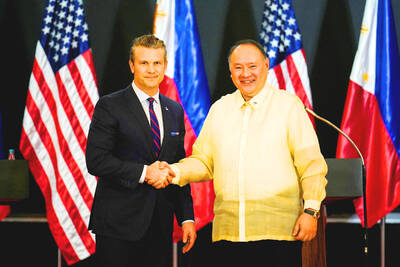Moroccan King Mohammed VI’s proposed new constitution would do little to change the status quo, falling short of expectations raised during the heady early days of the Arab Spring, analysts say.
“In terms of the distribution and architecture of power, this constitution is still far from democratic,” political scientist Mohamed Madani of Mohammed V University in Rabat said.
The touted new constitutional monarchy is “drowned” amid a raft of qualifiers and not backed up by the text, Madani said.
Under the draft constitution unveiled by the king on Friday, he would remain head of state and the military and still appoint ambassadors and diplomats, while retaining the right to name top officials of unspecified “strategic” administrations.
In the highly anticipated national address promised back in March, King Mohammed offered a text that he said would “consolidate the pillars of a constitutional, democratic, parliamentary and social monarchy.”
Under the new basic law, to be put to a referendum on July 1, the king would no longer designate the prime minister, who would henceforth be named by the winning party in elections.
The 47-year-old monarch, who took over the Arab world’s longest-serving dynasty in 1999, currently holds virtually all power in the country, and he is also its top religious authority as the Commander of the Faithful.
“The king keeps all his prerogatives,” said Khadija Mohsen-Finan, a researcher at the University of Paris who specializes in the Maghreb. “He is the guarantor of all of this new equilibrium. That is how we are not in a parliamentary monarchy.”
Madani also said the king’s proposals were mainly cosmetic, noting that the text had grown from 108 to 180 articles, and from a legal text to a “program constitution” — but one that remains “royal.”
“The king still smothers the political scene with his power,” said historian Pierre Vermeren, author of Mohammed VI’s Morocco: The Unfinished Transition.
Measures such as the recognition of the minority Berber language Tamazight as an official language have “a very strong symbolic import [but] don’t change much in practice,” he said.
And deleting the article on the king’s religious power is no more than a “ruse,” he added.
“You remove the symbol of this article, but keep the essence: the title of Commander of the Faithful, which makes the king the sole religious authority of the country,” Vermeren said.
“By the yardstick of the expectations raised by the Arab revolutions, the advances are very weak,” Mohsen-Finan said.

‘EYE FOR AN EYE’: Two of the men were shot by a male relative of the victims, whose families turned down the opportunity to offer them amnesty, the Supreme Court said Four men were yesterday publicly executed in Afghanistan, the Supreme Court said, the highest number of executions to be carried out in one day since the Taliban’s return to power. The executions in three separate provinces brought to 10 the number of men publicly put to death since 2021, according to an Agence France-Presse tally. Public executions were common during the Taliban’s first rule from 1996 to 2001, with most of them carried out publicly in sports stadiums. Two men were shot around six or seven times by a male relative of the victims in front of spectators in Qala-i-Naw, the center

Incumbent Ecuadoran President Daniel Noboa on Sunday claimed a runaway victory in the nation’s presidential election, after voters endorsed the young leader’s “iron fist” approach to rampant cartel violence. With more than 90 percent of the votes counted, the National Election Council said Noboa had an unassailable 12-point lead over his leftist rival Luisa Gonzalez. Official results showed Noboa with 56 percent of the vote, against Gonzalez’s 44 percent — a far bigger winning margin than expected after a virtual tie in the first round. Speaking to jubilant supporters in his hometown of Olon, the 37-year-old president claimed a “historic victory.” “A huge hug

Two Belgian teenagers on Tuesday were charged with wildlife piracy after they were found with thousands of ants packed in test tubes in what Kenyan authorities said was part of a trend in trafficking smaller and lesser-known species. Lornoy David and Seppe Lodewijckx, two 19-year-olds who were arrested on April 5 with 5,000 ants at a guest house, appeared distraught during their appearance before a magistrate in Nairobi and were comforted in the courtroom by relatives. They told the magistrate that they were collecting the ants for fun and did not know that it was illegal. In a separate criminal case, Kenyan Dennis

The US will help bolster the Philippines’ arsenal and step up joint military exercises, Manila’s defense chief said, as tensions between Washington and China escalate. The longtime US ally is expecting a sustained US$500 million in annual defense funding from Washington through 2029 to boost its military capabilities and deter China’s “aggression” in the region, Philippine Secretary of Defense Gilberto Teodoro said in an interview in Manila on Thursday. “It is a no-brainer for anybody, because of the aggressive behavior of China,” Teodoro said on close military ties with the US under President Donald Trump. “The efforts for deterrence, for joint resilience